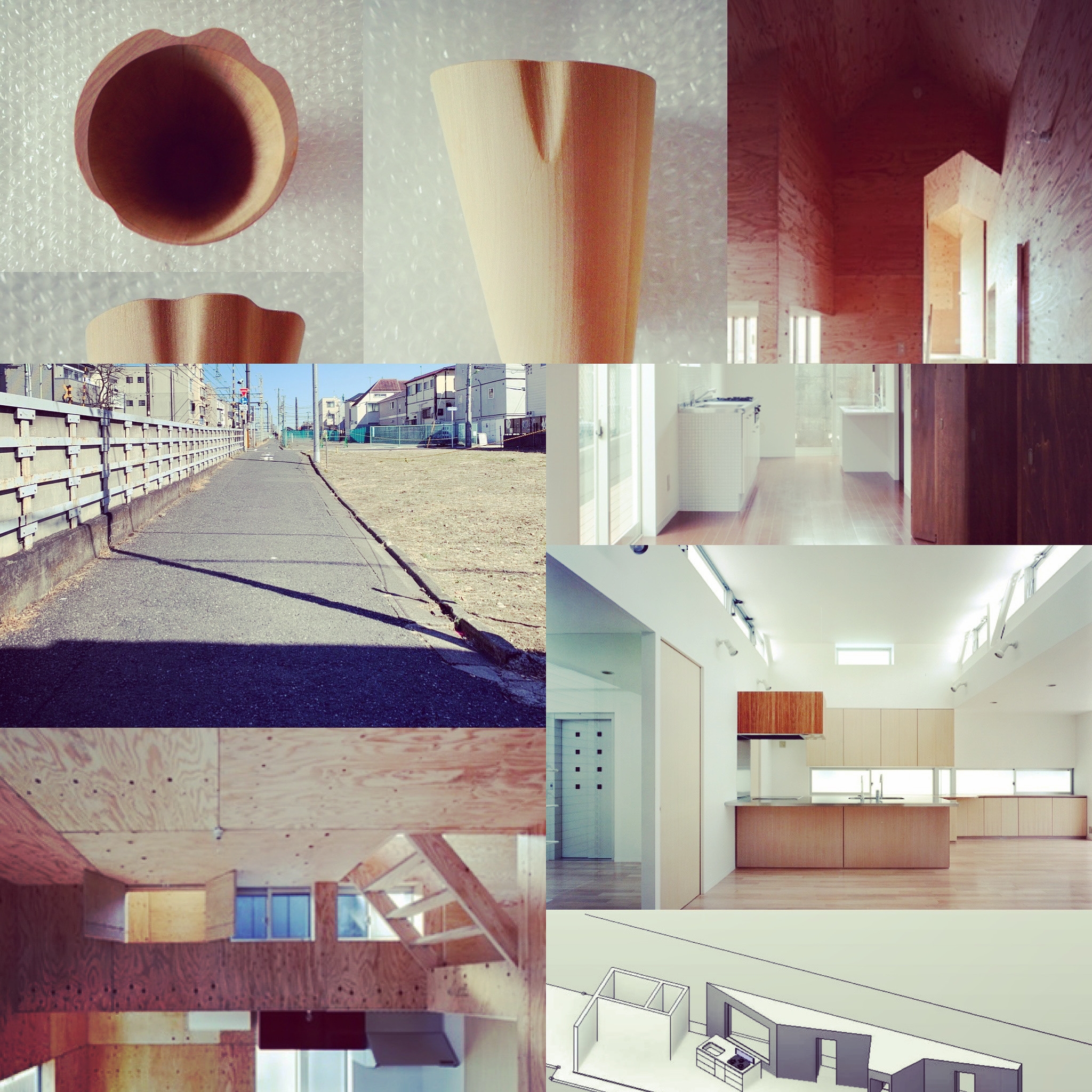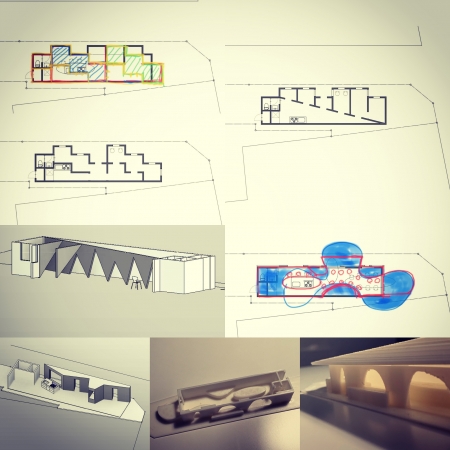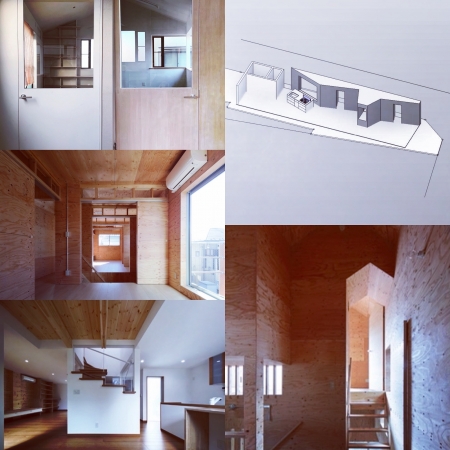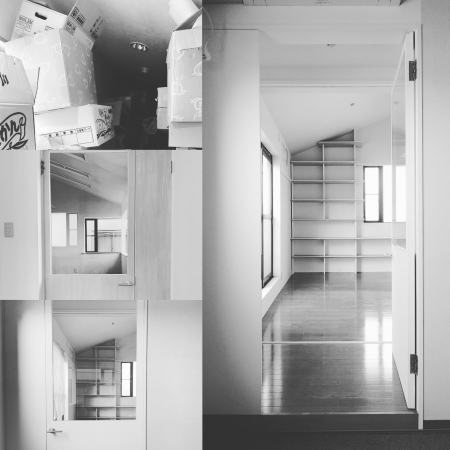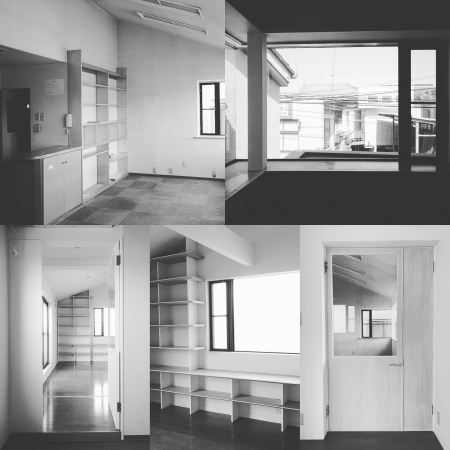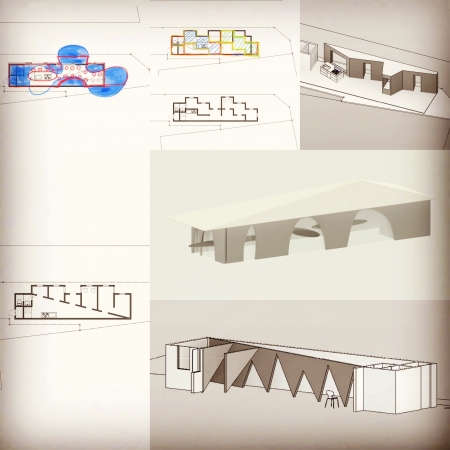時は様々なものを蓄積させる。記憶としての思い出の蓄積だけでなく、もの自体も勝手に蓄積する。
30年使用した事務所を退去し移転することになった。普段は見えない所に過去の仕事の痕跡がたくさんあり、自分も含めて誰も整理をしてこなかったので、ここ2、3ヶ月は30年分の仕事の痕跡を取捨選択し、何を残すのか、何を捨てるのかがずっと頭の片隅にあった。
結局、過去の仕事は自分が生み出した分身のようなものだと思い、すでに自分の手からは離れているが、生み出すまでの過程が記された線一本までが愛おしく、ほとんど捨てることができなかった。自分が生きている間は伴にするものだと覚悟してパッケージした。
今までものに溢れていた事務所が空になった。事務所の空間自体には特に思い入れはなく、郷愁に駆られることはないが、ものが溢れていた状態から空になった状態への変化が全てを表しているような気がしてスマホで写真を撮った。
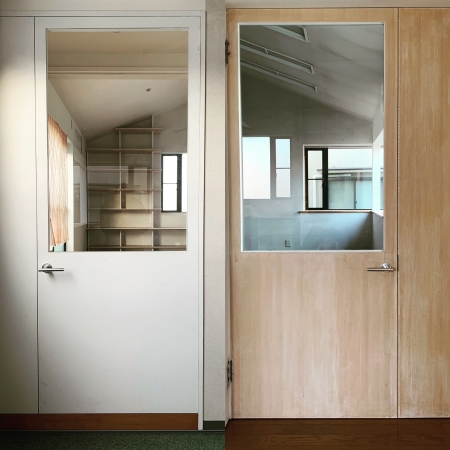
自分好みに制作した建具越しに2部屋を撮影した。この事務所の空間に自分が手を加えたのはこの建具だけであり、この建具で自分が実現したい見え方をつくり出した。
"When moving out"
Time accumulates various things. Not only the accumulation of memories as memories, but also the things themselves are accumulated without permission.
It was decided to move out of the office that had been used for 30 years. There are many traces of past work in places that are not normally visible, and no one, including myself, has organized them, so for the past few months, I have selected the traces of work for 30 years and left what to leave. I was always in the corner of my head about what to throw away.
After all, I think his past work is like an alter ego that he created, and although he is already out of his hands, he loves even one line that describes the process of creating it, and almost throws it away. I couldn't. She was prepared to accompany her for the rest of her life and packaged it.
The office, which was full of things, has been emptied. I don't have any particular feelings about the office space itself, and I'm not driven by nostalgia, but I feel that the change from an overflowing state to an empty state represents everything on my smartphone. I took a picture.
She photographed two rooms through the fittings she made to her liking. This fitting was the only one I modified in the space of this office, and I created the look I wanted to achieve with this fitting.


